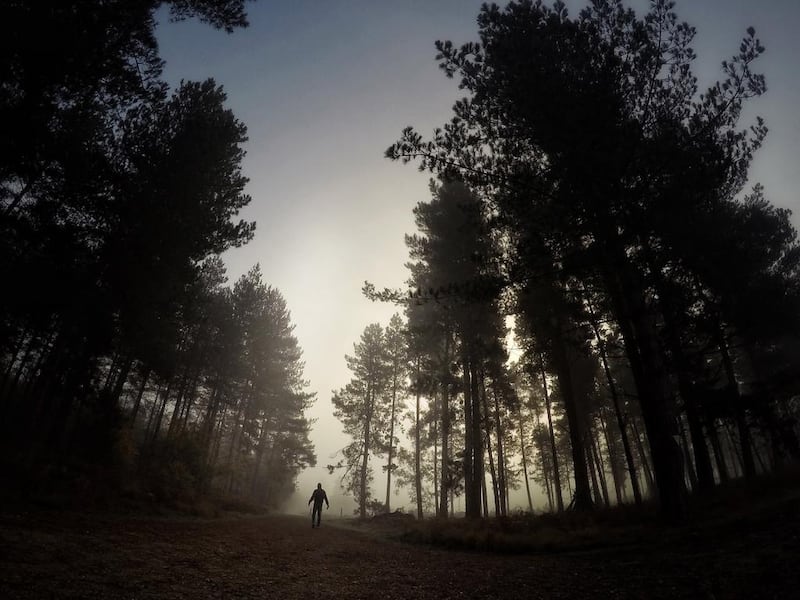Ali Shaw’s fiction has long exhibited a preoccupation with the fantastic, transformative and imaginative possibilities of the non-human world.
His first novel, The Girl with Glass Feet, tells the story of Ida MacLaird, a woman who one day finds that she is turning into glass and who, in search of a cure for her mysterious condition, happens upon an individual – Midas Crook – who brings to her life another form of dramatic change.
His second, The Man Who Rained, offers an account of how Elsa Beletti, fleeing from New York and the death of her estranged father (cause: tornado), finds herself caught up in the life of Finn Munro, a reclusive giant who is slowly turning into a storm cloud, and who promises to bring to Ella's own life a similar sense of metamorphosis and turbulence.
The Trees shares this concern with what can happen when apparently ordinary lives are visited by occurrences that upset or transgress the established laws of nature and physics.
Adrien Thomas is a middle-aged man who has recently abandoned his career as a history teacher.
When we encounter him at the start of the novel he is mourning the absence of his wife, Michelle (who, after encouraging him to find a new profession, is staying in Ireland), and taking solace in a life of cheep beer, Chinese takeaways and westerns. Adrien is bereft of most forms of company; compromised by a sense of fear and threat (“On many nights... he had lain awake imagining some crisis that would require him to abscond through the window”); assailed by conflicting ambitions: “He wanted to be a good man, ideally a great one. A man who would go down in history as the solver of some global crisis... Yet he also wanted to get up late, to sit for most of the hours of the day in his boxer shorts.”
He gets his crisis. Waking one morning from the torpor and loneliness that has characterised his life without Michelle, he finds that the world he expected to greet him has been replaced by a forest that has “burst full-grown out of the Earth”, destroying the streets and the buildings that once formed the apparently permanent environment of his life.
In the aftermath of this trauma, Adrien sets out – with the help of the nature-loving Hannah and her son Seb – to reacquaint himself with his wife, and to see if the trees have come to claim her world, too.
As they do so they enlist the assistance of Hannah’s forester brother, and the ensuing narrative shows us how, in the midst of danger and beauty, they each come to realign themselves – their needs, their desires – with a world with which they had once felt out of step.
Shaw’s handling of this story is, for the most part, perplexingly inept – and almost all of the ineptitude comes from his use of language.
It is relentlessly inert, careless, hackneyed (beers are “cracked open”; armchairs are “sprawled back in”; situations change “in the blink of an eye”; crowds are “stunned into silence”; individuals try to “take stock of it all”), and when it is not these it is stagily artificial: “Adrien swigged on his hip flask... Right now he needed whatever kind of courage he could come by.”
When Shaw’s characters talk to one another, or think aloud, they are made to do so with a similar disregard for particularity of situation or personality: In finding that a forest has destroyed his home, Adrien says ‘“What on earth’”, sets about trying “to think straight”, then wonders if he might have “died and gone to some kind of hell”.
And when they are not doing that, they talk in cadences that are imbued with excruciatingly clumsy attempts to achieve thematic resonance: “‘Look’, he said, ‘it’s just a tree. You can find a new favourite one. There are more than a few to choose from.’ She turned and glared at him. ‘It’s not just any tree. It’s living history.’”
One of the many problems with writing like this is that it robs a book of its atmospheric and narrative force.
The Trees might have been a novel rich with life. What we have feels barren and cheap.
Matthew Adams lives in London and writes for the TLS, The Spectator and the Literary Review.





